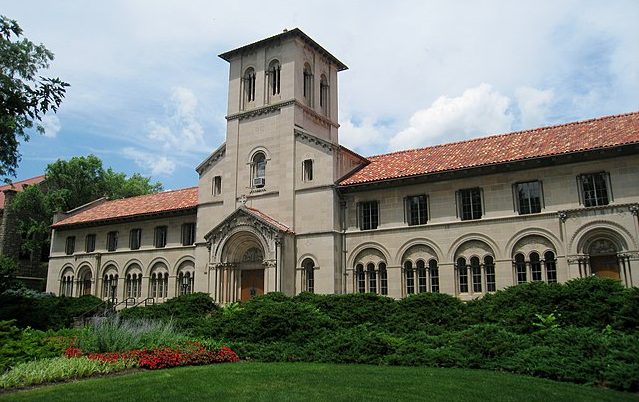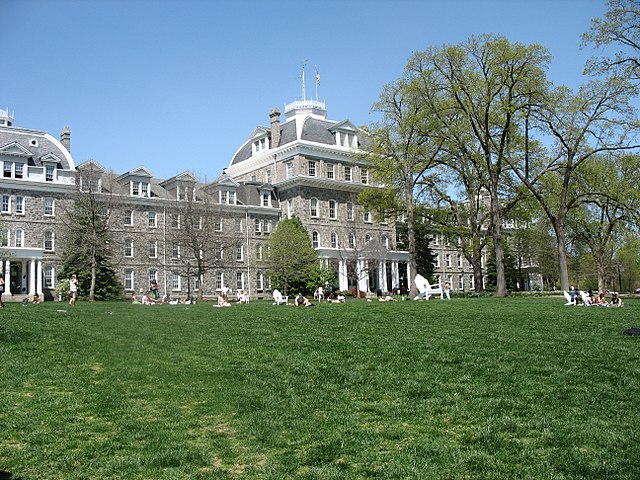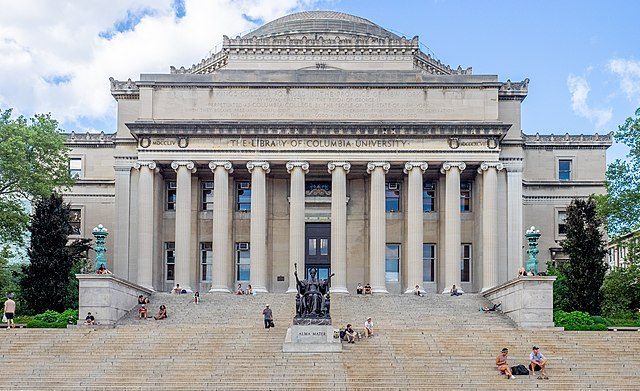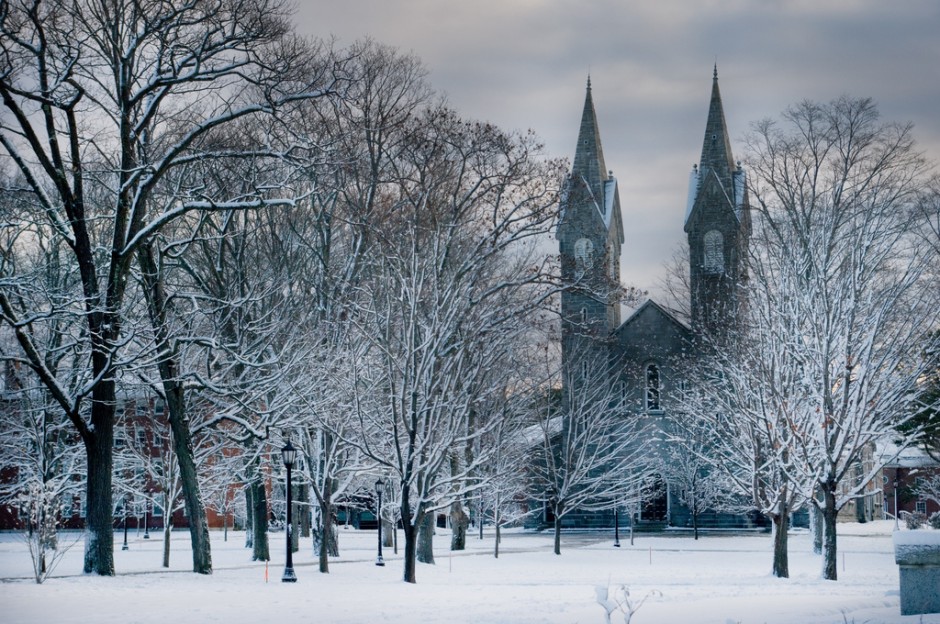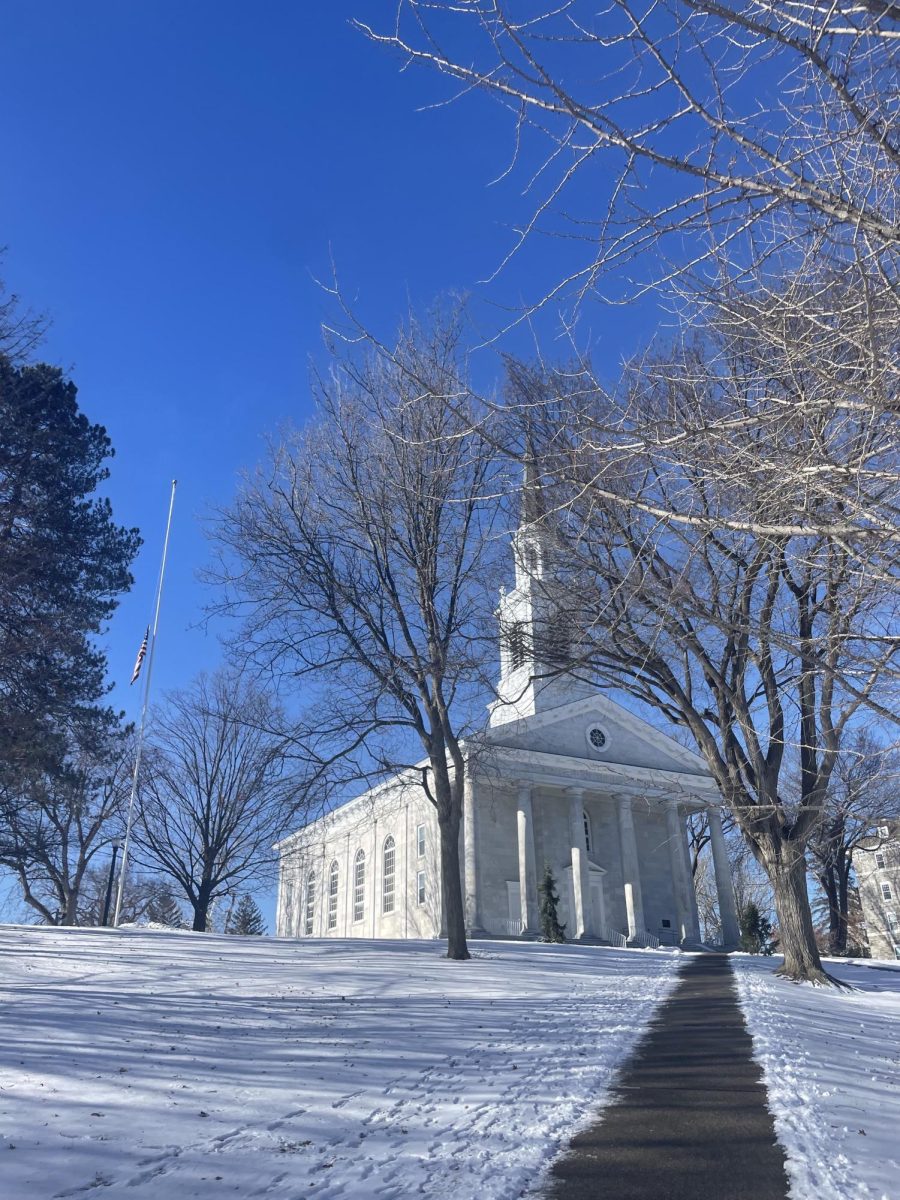Over the past month, many of the College’s peer institutions have announced their plans on whether or how to return to campus for the fall semester. President Maud S. Mandel committed to making an announcement about the College’s plans by July 1, and as that date draws near, the Chronicle of Higher Education has compiled a list of the plans released by over 1,000 colleges and universities. According to their tracker as of Tuesday night, 64 percent of colleges are planning for an in-person semester, 16 percent are proposing a hybrid model, 7 percent are considering a range of scenarios, 8 percent of are planning for an online semester and 5 percent still waiting to decide.
In-Person
Massachusetts College of Liberal Arts (MCLA) in North Adams announced on Thursday that they will resume on-campus learning in the fall. MCLA President James Birge stressed the importance of in-person education for students at MCLA and stated that the college residential experience would be significantly shifted to accommodate social distancing for the fall semester.
A fellow NESCAC school, Bates, made an announcement on June 15 that lays out plans to bring students back to Lewiston. In a move similar to that of many other colleges that have submitted fall plans, Bates will open in early September, and students will not return to campus after Thanksgiving break, taking finals remotely. Bates will use a “2+2” course model for its semester, where students will take two classes per quarter, making a mid-way departure from campus less disruptive than the spring 2020 departure.
Middlebury, another member of NESCAC, announced yesterday that students would be returning to campus in the fall. Middlebury intends to hold a twelve-week semester, without its usual October break, and with remote final exams. The college announced that it plans to adjust all in-person classrooms to accommodate social distancing and expand outdoor course offerings. Additionally, of the 530 courses that the school will offer this fall, about 175 (about 33%) will be held online.
Tufts also announced today that it plans to bring students back to campus in the fall. Tufts will keep the academic calendar the same, including breaks, but will discourage students from traveling over Thanksgiving. The university will test students as they arrive to campus and will group students into “residential cohorts” of six to 12 students, who will live in existing dorms and newly constructed temporary housing. Tufts is also planning a specific residence hall for isolating anyone diagnosed with COVID-19. Tufts has also canceled all fall study abroad programs.
Online
Not all students in Massachusetts will be returning to campus in the fall, however. The interim chancellor of the University of Massachusetts — Boston, Katherine Newman, stated on June 11 that UMass Boston should plan on remote education in the fall. Citing the disproportionate impact that COVID-19 has had on communities of color and the prevalence of commuter students in the school’s student body, Newman viewed the online option to be the safest option for both students and the broader community. Newman was optimistic about the spring semester, stating that the college would be likely to return to in-person education in spring 2021.
The University of California at Los Angeles announced a similar plan on June 15th, stating that the vast majority of courses for all students would be offered online, with only a small percentage being offered on-campus with a hybrid model. UCLA will employ a policy of strict social distancing and mandatory face coverings for students who need to live on campus during the fall semester, a policy adopted by many colleges pursuing in-person education. Other members of the University of California system, including the campuses in Merced and Irvine, will implement a similar plan to that of UCLA.
Hybrid
Many colleges and universities are proposing hybrid or mixed-mode participation models for the fall semester. Acknowledging that many students may be unable to make it back to campus for the fall semester, these models seek to utilize technology to merge the remote and in-person education opportunities. Both Carnegie Mellon University and Rice University will adopt such models for the fall semester. Like Bates, Rice will also have a shortened semester.
Meanwhile, Bowdoin College announced yesterday that it will be undertaking a unique hybrid model. First years, transfer students, students with difficult home circumstances, student residential life coordinators and some honors thesis students whose work necessitates being on campus will be allowed back in the fall, while the remainder of students will study remotely. Despite allowing some students to return to campus, Bowdoin has stated that, “nearly all classes, including those on campus, will be taught online.” Bowdoin noted that it hoped for senior, junior and sophomore students to return to campus for the spring semester, while freshmen and transfer students would be expected to study remotely.
Some hybrid models are not yet fully developed, and Carnegie Mellon and Rice have released their plans with the caveat that they are still under development. As the summer goes on, universities will begin to release clearer procedures for hybrid courses, giving students more insight into the logistics of fall semester hybrid options.



